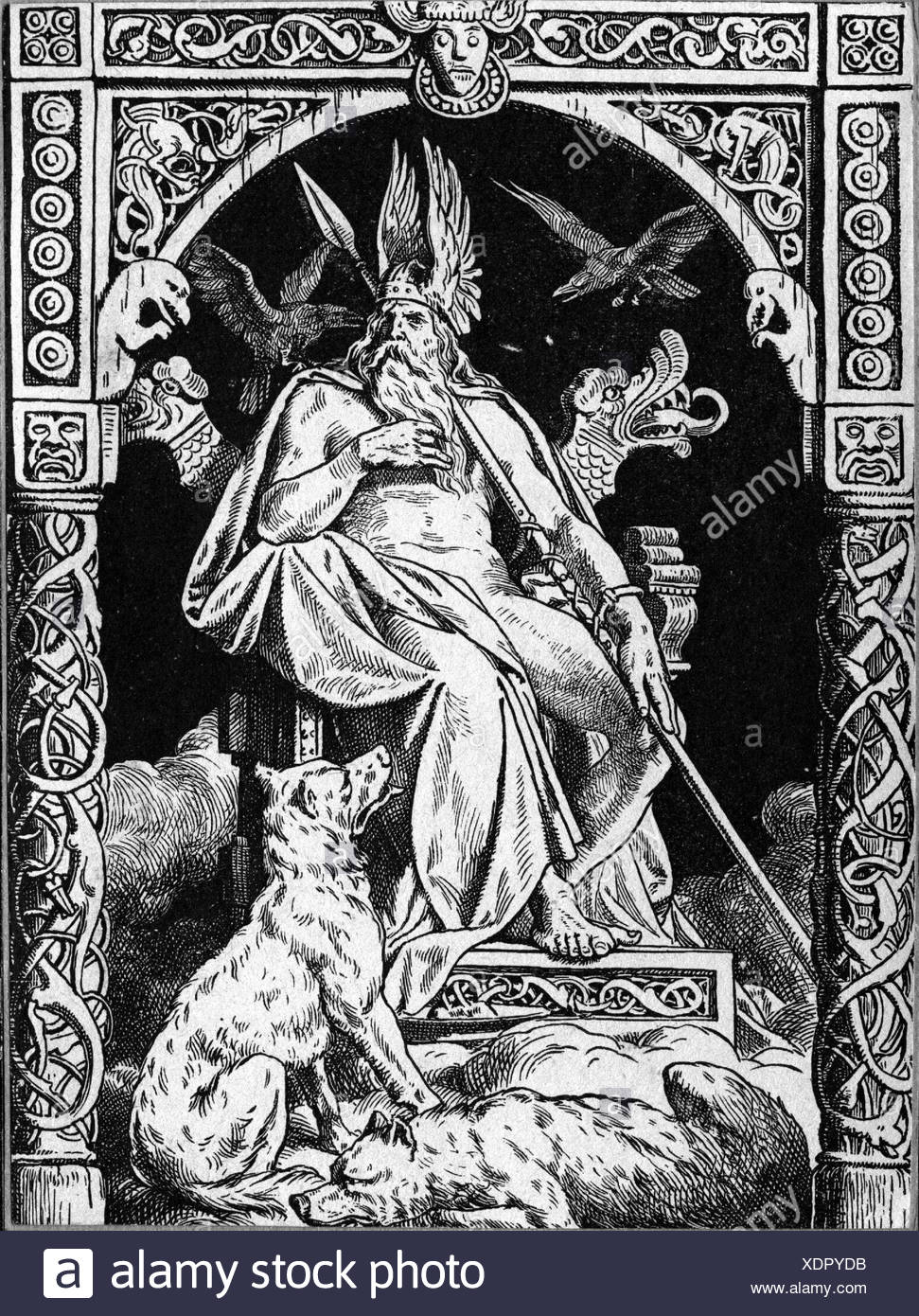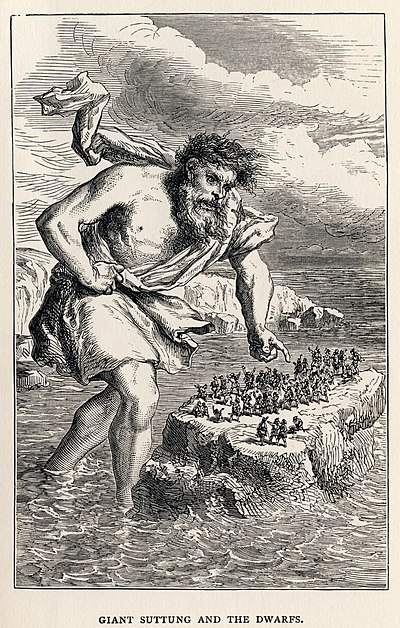01.08.2020
Serena Low Period 1
Blog #43
Today's lesson was taught by Team (3) Hammer Time on the story of The Mead of Poets as part of the intro to Norse Mythology project. Required reading: pgs 127-151
Aim: How does Norse Mythology use symbolism to highlight wisdom, envy, and the origin of poetry?
Do Now: (Pair-Share) What characteristics separate good poetry from bad poetry? Why is poetry often used for rites of passage, such as marriage, maturity, and birth?
One student stated that there's no such thing as good or bad poetry; it's all just poetry. He stated that the reason why we thought it was part of the rite of passage was because in class, we learned that poetry is the type of literature that is preserved over many eras and poetry is like a song which can be memorized easily. There's a reason why poetry has been part of storytelling altogether and why it has lasted for so long. Poetry as meaning and substance behind it. All events in your life are special and so is poetry.Another student stated that good versus bad poetry is subjective. While one may deem the piece trash, another might cherish it as treasure. The use of it during the rites of passage is only because the pieces of literature happen to encompass the events. These events are core events in most people's lives and that's why poetry with content about the events of love, development, and birth becomes more profound to the readers.
Whole Class Discussion: After watching the animation, how would you describe the ambiance of the video? How does it relate to Norse mythology's theme? How does it mimic the personalities of Norse Gods? (Odin, etc.)
The ambiance of the video was bleak, displaying events and characters in monochrome, which fits the theme of deception and darkness within the story. It demonstrated Odin's long plot to obtain the Mead of Poetry and how much care and effort he put into his plan, fitting of Odin's personality very well. The recurring theme in the Mead of Poetry is death and violence, where Odin kills a lot of people/giants to get what he wants. Once again, the black and white theme of this animation resembles the deceit, death, and darkness that the story is construed with.
In the Mead of Poetry, Odin is major character. Not only was his journey to obtain the mead central to the story, but the effect the mead in Odin's possession was central to an explanation of what makes poetry good or bad: the poetry coming from mead that Odin throws up is good poetry and those coming from his rear in a "wet fart" is bad. This outlines the power Odin has over poetry and overall wisdom.
The Beginnings of the Mead of Poetry
- The Aesir (war-like gods of battle and conquest) and Varnir (sister gods and goddesses that made soil fertile and plants grow) were at war.
- They came to a truce by each spitting into a vat, birthing Kvasir, the wisest of the gods
- Kvasir left Asgard to explore the other nine worlds
- While passing through villages and towns, he comes across two dwarves, Fjalar and Galar
- Dwarves are obsessed with making things and these dwarves were eager to find something new to brew and make.
- Fjalar and galar manipulate Kvasir and use his knowledge against him.
- They found out what to make next and killed him afterwards, mixing his blood with honey to create the Mead of Poetry.
- Anyone who drank the Mead of Poetry would become a poet or scholar.

The Journey of the Mead of Poetry
- One day, the dwarves were rowing in a boat with Gilling, a giant, but his weight was far too great for the boat so they threw him off
- Gilling drowned and the dwarves went after his wife too (they killed her).
- The sons of Gilling came to avenge their parents, but spared the dwarves' lives for the mead
- One of the sons, Suttung, took the mead and stowed it away in a mountain guarded by his daughter, Gunnlod
- Odin eventually heard about this and began to set out for the mead
- Leaves with a whetstone to sharpen blades with and the strongest drill (Rati)
- Odin approaches Suttung's brother, Baugi.
- In the fields, Odin sees Baugi's nine giant slaves, cutting grass for hay with a scythe of their own
- Odin allowed the giants to sharpen their scythes with the whetstone and cutting grass became effortless for them
- Because it was so effortless, the giants wanted the whetstone for future usage for themselves. Odin threw it up in the air and the giants jumped after it with the sharpened scythes in hand.
- The sharpened scythes killed the giant adjacent, ending in a lot of dead giants
Discuss: Is Odin in the wrong for using trickery to obtain knowledge?
Some students in the class believed that Odin was wrong tricking people is wrong in general. While his intent was semi-understandable, trickery and deception is, nonetheless, wrong. In the story, he's basically indistinguishable from Loki, which is ironic given that he's supposed to be wise and all-knowing. He should know better than to leave a trail of enemies behind.
Having the mead in the giant's possession when it first belonged to the gods is a decent motive to try to obtain the knowledge. The giants were the fated enemies of the gods and the gods wouldn't want them to have an advantage.
Odin's Quest for Mead
- Odin asks Baugi, who was unaware that he was the cause of his slaves' deaths, for lodging under the alias "Bolverkr," meaning "worker or terrible things"
- Odin agrees to do the work of nine men in return for a taste of the mead
- After his hard work, he is taken to Suttung who refuses to give Odin a taste
- Baugi eventually takes him to a mountain and drills a tunnel through the side of the mountain
- Odin transforms into a snake and slithers through the tunnel where Gunnlod and the mead reside
- Odin uses his charisma and wise words to deceive Gunnlod disguised as a handsome man
- He gains her trust only to break it
- His "tastes" were not tastes
- Drank all of the kettle Odrerir in his first drink
- Drained the vat "Bodn"
- Emptied the var "Son"
- Odin transforms into an eagle and flies off
- As Odin approached the hall, he spits a fountain of mead into the vats, providing the gift of poetry for everyone (good poetry)
- Out of his rear, he releases a "wet fart" to evade his pursuers (bad poetry)
Significance of Poetry in Viking Culture
- Two types of Old Norse poetry
- Eddaic poems: a collection from an unknown author and tells stories of Norse mythology
- Poems could be about anything
- The language is usually clear and relatively unadorned
- Skaldic poems: performed by known poets and are in tribute of a hero or king
- Uses kennings, a compound expression in Old English and Old Norse poetry with metaphorical meaning
- Used to tell stories and for entertainment during the colder months
- Skalds, or Viking's poets, became very prominent in Viking cultures as kings wanted their legacies to be remembered
- Skalds wrote complex, compelling verse
- Poetry was considered a gift of Odin and being a skald made a person part of the upper class in society

Why do you think food is a prominent feature in mythology? Discuss with your group.
In different situations and moods, you can eat food, whether it be at a funeral or a wedding. Food is used to survive and mythology is there to tell people that they can't live without food, water, or shelter, things that the gods have power over. Mythology is there to promote the dominance of the gods over our lives, associating them with a higher power. Food in itself has power as well. The extravagance of food and banquets and gatherings are recurrent in Norse mythology and other cultures. The celebrations and food has the power to bring all-powerful gods together.
Brainstorm/Share: The Mead of Poetry is the cornerstone of Norse mythological artistry. Are there other important objects or foods in other cultures?
In Christianity, Jesus turns water into wine. "Wine is my blood and bread is my flesh." In churches, on certain occasions, there's wine and bread distributed and eaten. It offers the opportunity to become one with god and to be rejuvenated with both physical strength and spiritual strength.
Connection to the Real World
- Wisdom can come in many forms
- ex: Odin gained wisdom when he consumed the Mead of Poetry
- Required great effort and sacrifice
- Drinking the mead not only gifted words and knowledge, but more importantly, the ability to inspire and arrange the words in a much more meaningful way to help others
- ex: preventing Ragnarok
- We gain new knowledge everyday, even if we might not be aware of it
- May include information we coincidentally overheard
- It's up to use to decide how to use the knowledge or if to use it at all
Reflection:
The story of the Mead of Poetry accentuates the power that knowledge has over all kinds of people, no matter how powerful that person may be, god or human. Knowledge had the power to make Odin, one of the wisest and most powerful gods, into a rampaging and impulsive being. The path to gain knowledge isn't pretty either. The dwarves first killed Kvasir and then they killed two other giants, only to be spared by the giants' sons. Then, Odin comes along and kills nine slave giants just for a taste of knowledge. Odin had to deceive so many people on his path to knowledge, betraying many people's trust. Knowledge has the power to make things ugly and violent. Sometimes, pursuing knowledge isn't the best choice. The group did a good job at explaining the themes and lessons to be learned within this story. They were cohesive with each other for the most part and most of them looked like they knew what they were talking about. They gave feedback to those who participated and responded to their prompts, which I thought was nice.


No comments:
Post a Comment